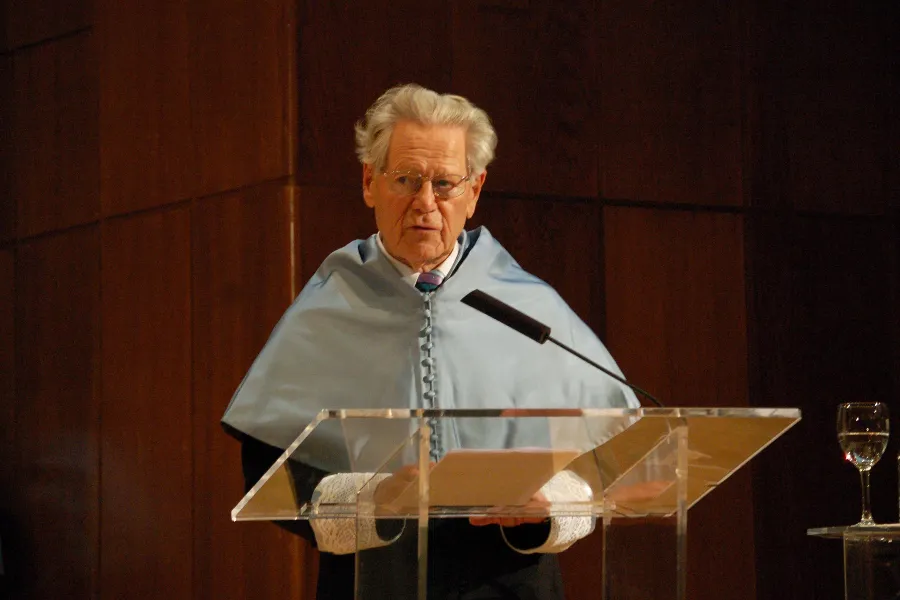From the 1990s, Küng championed the idea of a “global ethic,” emphasizing common ethical values in the world’s major religions.
Leading tributes to the theologian on April 6, Bishop Georg Bätzing, president of the German bishops’ conference, said: “With the death of Prof. Dr. Hans Küng, theological scholarship loses a renowned and controversial researcher.”
“In his work as a priest and scholar, Hans Küng was concerned to make the message of the Gospel understandable and to give it a place in the lives of the faithful.”
“I am thinking in particular of his efforts with regard to a living ecumenism, his commitment to interreligious and intercultural dialogue, and the Global Ethic Foundation he founded, with its important research and projects on peace, justice, and the integrity of creation.”
He continued: “Hans Küng never failed to stand up for his convictions. Even if there were tensions and conflicts in this regard, I thank him expressly in this hour of farewell for his many years of commitment as a Catholic theologian in communicating the Gospel.”
“The dialogue of religions in the effort for a global ethic was of great concern to him. Hans Küng was deeply influenced by the Second Vatican Council, whose theological reception he endeavored to achieve.”
Küng was born on March 19, 1928, in Sursee, in the Canton of Lucerne, Switzerland. After studying philosophy and theology at the Pontifical Gregorian University in Rome, he was ordained in 1954.
Reflecting on his life in a 2002 book, Küng said that after the 1979 Vatican ruling he remained “a Catholic priest in good standing.”
“I affirm the papacy for the Catholic Church, but at the same time indefatigably call for a radical reform of it in accordance with the criterion of the Gospel,” he wrote in “The Catholic Church: A Short History.”
In his tribute, Bätzing recalled a landmark meeting between Küng and Pope Benedict XVI in September 2005. The two men were colleagues at the University of Tübingen in the latter half of the 1960s, but reputedly fell out over their theological differences.







